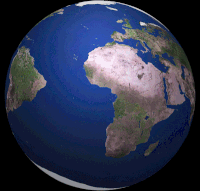During World War II, when I was a young boy in the Belgian Congo, Dad would turn on the large radio console and listen to BBC News.
Years later, he explained to me that Charles DeGaulle, a French general, was in exile in Brazzaville, the capital of French Congo, across the river from what was then Leopoldville, now Kinshasa. We were upriver, in the Ubangi Territory, the extreme northwest corner of Belgium’s largest African colony.
My father said that many ex-patriates and Congolese were worried that Adolph Hitler was going to send troops to Central Africa to capture General DeGaulle and occupy the region. North Africa already had been occupied by the Axis powers.
So, the BBC provided our family with important news for our daily lives. When we moved to the United States, Dad and I would listen to World News Roundup with Winston Burdett as we ate breakfast.
Because of this, I realized how important accurate news is, and that shaped everything that I did while working at newspapers and magazines and eventually teaching journalism at three universities.
The goal was to pass on to students the significance of accurate and complete reporting, and many have distinguished themselves in community and regional journalism as well as elite media.
To help students prepare for media careers, we often brought outstanding journalists and scholars (especially those who also wrote for mass media) to campus. One of these events helped inspire the creation of GetReligion.
After the tragedy of September 11, 2001, our journalism team at the University of Nebraska invited the legendary Martin Marty, Fairfax M. Cone Distinguished Service Professor Emeritus of the History of Modern Christianity at the University of Chicago. In many polls, Marty had been named as one of America’s most trusted religious leaders. He was a legend among religion-beat professionals — leading to the old saying that the formula for a front-page feature was a national study or poll, several local anecdotes and “a quote from Martin Marty.”
Marty, a native of Nebraska, came to lecture about religion in the mainstream press. We asked Terry Mattingly, a journalism professor and syndicated religion columnist, to respond to Marty’s presentation.





